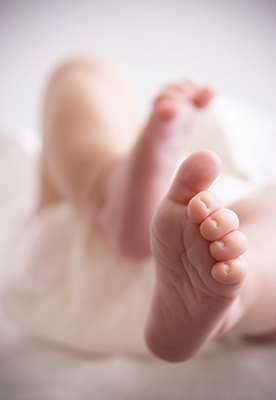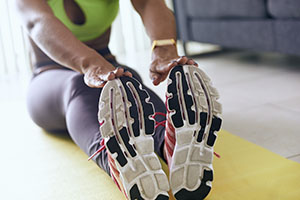Blog
Wear Good Quality Running Shoes
 Wearing the right shoe is very important when it comes to preventing foot injuries. If you plan on running, you should wear running shoes and not walking shoes. It is also important to buy good quality shoes for your feet. Cheap, poor quality shoes may increase the chance of you getting injured while running. You should look for shoes that are sturdy and are able to endure wear and tear. Lastly, you should make sure that your shoes fit properly and have a little bit of space at the front.
Wearing the right shoe is very important when it comes to preventing foot injuries. If you plan on running, you should wear running shoes and not walking shoes. It is also important to buy good quality shoes for your feet. Cheap, poor quality shoes may increase the chance of you getting injured while running. You should look for shoes that are sturdy and are able to endure wear and tear. Lastly, you should make sure that your shoes fit properly and have a little bit of space at the front.
If you are a runner, wearing the right running shoe is essential. For more information, contact Dr. Michael E. Newman of Pennsylvania. Our doctor can treat your foot and ankle needs.
Choosing the Right Running Shoe for Your Foot Type
To increase performance and avoid the risk of injury, it is important to choose the right running shoe based on your foot type. The general design of running shoes revolves around pronation, which is how the ankle rolls from outside to inside when the foot strikes the ground.
- Neutral runners are able to choose from a wide variety of shoes, including minimalist shoes or even go barefoot
- Runners who overpronate, or experience an over-abundance of ankle rolling, should choose shoes that provide extra motion control and stability
- Runners who underpronate, or supinate, have feet that have high arches and lack flexibility, preventing shock absorption. They require shoes with more flexibility and cushion
If you have any questions, please feel free to contact our office located in Plymouth Meeting and Ambler, PA. We offer the newest diagnostic and treatment technologies for all your foot and ankle needs.
Clubfoot in Newborn Babies
 A woman named Mary carried her daughter, Faye, to full term. Her ultrasound revealed that Faye had a clubfoot. Although Faye was a bit smaller than usual, she was expected to lead a normal and healthy life. As time progressed, the odds of Faye living began to decline. She was diagnosed with a disease called Trisomy 18 and eventually passed away.
A woman named Mary carried her daughter, Faye, to full term. Her ultrasound revealed that Faye had a clubfoot. Although Faye was a bit smaller than usual, she was expected to lead a normal and healthy life. As time progressed, the odds of Faye living began to decline. She was diagnosed with a disease called Trisomy 18 and eventually passed away.
Clubfoot, like many other conditions, requires the proper treatment and care. If you are seeking treatment, contact Dr. Michael E. Newman of Pennsylvania. Our doctor can properly diagnose any injuries or conditions and provide you with appropriate treatment options.
Clubfoot in Newborns
Clubfoot is a congenital disorder that can occur in 1 of 1,000 births per year. There are different causes for clubfoot, usually occurring as a result of genetics and pregnancy related complications. The abnormalities can be recognized during ultrasounds as early as the 20th week of pregnancy.
Treatment for Clubfoot
- Treatment involves reshaping the foot through surgery.
- Feet are moved into their correct position and placed into casts to ensure that it adjusts.
Non-Surgical Treatment
- Botox can be injected into the calf and weaken the Achilles tendon which allows the ankle to go back into a normal position.
After effects
Children who undergo treatment have not shown any further issues with their feet. There is always hope to overcome.
If you have any questions, please contact our offices in Plymouth Meeting and Ambler, PA. We offer the newest diagnostic and treatment technologies for all your foot and ankle needs.
Read more about clubfoot.
Be Careful When Choosing Summer Footwear
 There is a positive correlation between warm weather and the amount of people going to podiatrists for plantar fasciitis. This is because people tend to wear sandals and flip flops with no arch support in warmer months. In order to prevent getting plantar fasciitis, you should always make sure that you stretch your feet before and after you exercise. It is also important to wear running shoes when you exercise. The most common reason for young people to have plantar fasciitis is from “too much activity.” For adults, the most common reason for them to have the condition is because they “aren’t using the right shoes.”
There is a positive correlation between warm weather and the amount of people going to podiatrists for plantar fasciitis. This is because people tend to wear sandals and flip flops with no arch support in warmer months. In order to prevent getting plantar fasciitis, you should always make sure that you stretch your feet before and after you exercise. It is also important to wear running shoes when you exercise. The most common reason for young people to have plantar fasciitis is from “too much activity.” For adults, the most common reason for them to have the condition is because they “aren’t using the right shoes.”
Every day foot care is very important, especially for those that are lacking the proper foot care resources. For more information about everyday foot care, contact Dr. Michael E. Newman of Pennsylvania. Our doctorwill assist you with all of your podiatric concerns.
Every Day Foot Care
Often, people take care of their bodies, face and hair more so than they do for their feet. But the feet are a very important aspect of our bodies, and one that we should pay more attention to. After all, without our feet, we would not be able to perform most daily tasks. It is best to check your feet regularly to make sure there are no new bruises or cuts that you may not have noticed before, for example.
For dry feet, moisturizer can easily be a remedy and can be applied as often as necessary to the affected areas. Wearing shoes that fit well can also help you maintain good foot health, as well as making it easier to walk and do daily activities without the stress or pain of ill-fitting shoes, high heels, or even flip flops.
Also, wearing clean socks with closed shoes is important to ensure that sweat and bacteria do not accumulate within the shoe. Clean socks help to prevent athlete’s foot, fungi problems, bad odors, and can absorb sweat.
If you have any questions please feel free to contact our office located in Plymouth Meeting and Ambler, PA. We offer the newest diagnostic and treatment technologies for all your foot and ankle needs.
Read more about Everyday Foot Care
How to Prevent Plantar Fasciitis
 Plantar fasciitis is a condition that is developed when the fascia in the foot is stretched and strained. This is often caused by wearing shoes that offer little to no arch support, such as flip flops. The pain that results from plantar fasciitis is often excruciating, but it can be treated. Rest, relaxation, and stretching are the most common ways to alleviate pain that stems from the condition. In order to prevent developing plantar fasciitis in the future, you should always make sure the shoes you wear have good support.
Plantar fasciitis is a condition that is developed when the fascia in the foot is stretched and strained. This is often caused by wearing shoes that offer little to no arch support, such as flip flops. The pain that results from plantar fasciitis is often excruciating, but it can be treated. Rest, relaxation, and stretching are the most common ways to alleviate pain that stems from the condition. In order to prevent developing plantar fasciitis in the future, you should always make sure the shoes you wear have good support.
Plantar fasciitis can be very painful and inconvenient. If you are experiencing heel pain or symptoms of plantar fasciitis, contact Dr. Michael E. Newman of Pennsylvania. Our doctor will assist you with all of your podiatric concerns.
What is Plantar Fasciitis?
Plantar fasciitis is the inflammation of the thick band of tissue that runs along the bottom of your foot, known as the plantar fascia, and causes mild to severe heel pain.
What Causes Plantar Fasciitis?
· Excessive running
· Non-supportive shoes
· Overpronation
· Repeated stretching and tearing of the plantar fascia
How Can It Be Treated?
· Conservative measures – anti-inflammatories, ice packs, stretching exercises, physical therapy, orthotic devices
· Shockwave therapy – sound waves are sent to the affected area to facilitate healing and are usually used for chronic cases of plantar fasciitis
· Surgery – usually only used as a last resort when all else fails. The plantar fascia can be surgically detached from the heel
While very treatable, plantar fasciitis is definitely not something that should be ignored. Especially in severe cases, speaking to your doctor right away is highly recommended to avoid complications and severe heel pain. Your podiatrist can work with you to provide the appropriate treatment options tailored to your condition.
If you have any questions please feel free to contact our office located in Plymouth Meeting and Ambler, PA. We offer the newest diagnostic and treatment technologies for all your foot and ankle needs.
Read more about Plantar Fasciitis
